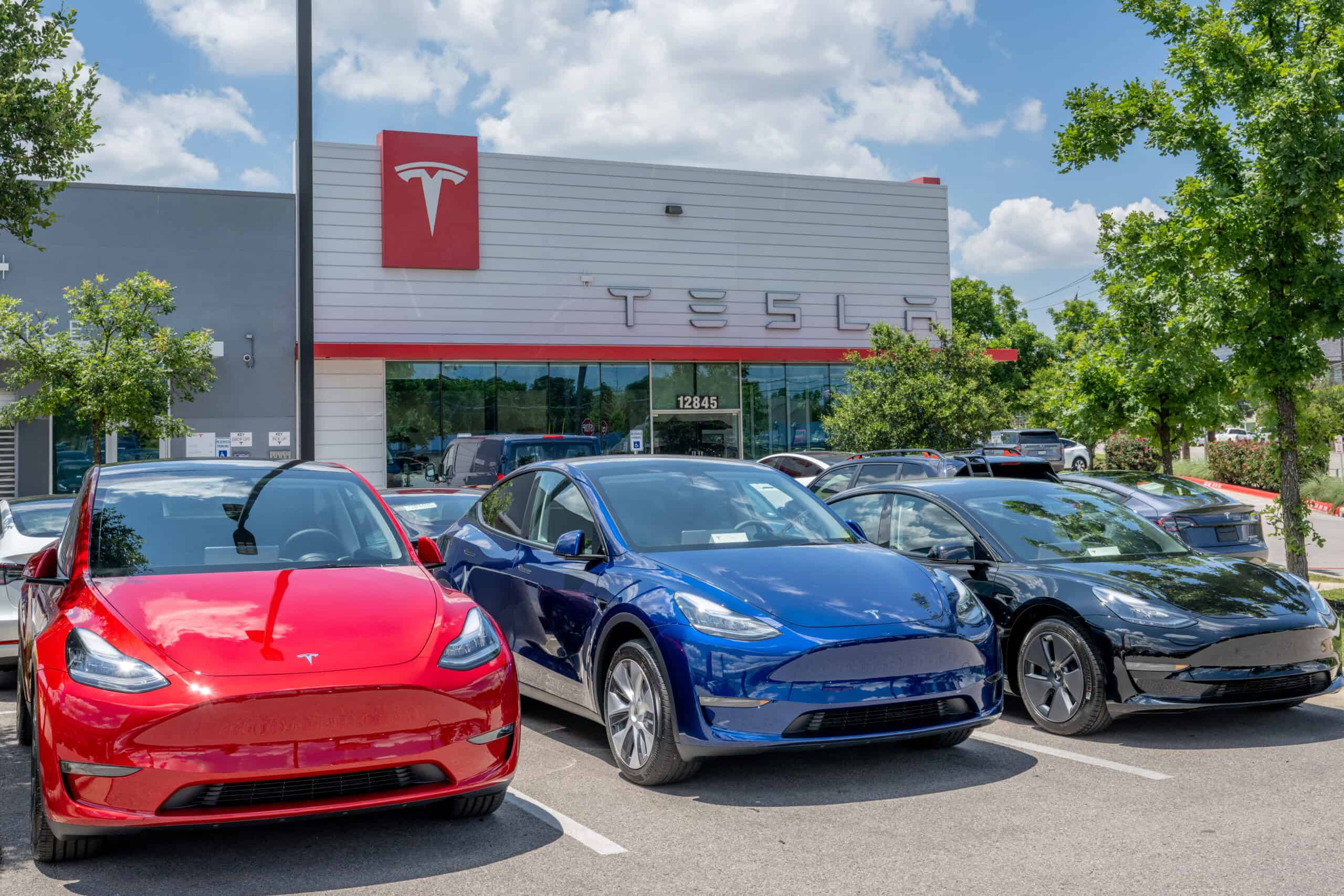
Tesla Inc. (NASDAQ: TSLA) stock is off 2% in the past year, as the Nasdaq has risen 40%. It is a blow to long-term investors who have watched Tesla stock rise by 927% in the past five years, while the Nasdaq is up by 122%. Analysts have blamed slowing electric vehicle (EV) sales for the share price decline, as well as increasing competition, particularly in China.
Tesla has just reduced prices in China, likely in an attempt to gain market share in the world’s largest auto market by far. Tesla has stiff competition there, particularly from local companies led by BYD, the biggest EV company in the world by unit sales.
According to Reuters, in a post on social media, Tesla wrote, “Pickups of existing inventories of Model 3 sedans and Model Y SUVs by the end of March would be entitled to a maximum of 34,600 yuan ($4,807.76) worth of incentives.” “Pickups” are essentially cars delivered to customers. (Five reasons to avoid Tesla Model 3 no matter what.)
More Price Cuts

Tesla has cut prices in the United States in the past six months. In most cases, these cuts total several thousand dollars. While it still holds a 50% share in the United States, competition has heated up as the world’s largest car companies try to get a foothold.
The price cuts are understandable, even if they hurt Tesla financially. When it posted full-year 2023 earnings, the company announced that 2024 sales would slow. In 2023, deliveries were up 38% to 1.81 million worldwide. In the fourth quarter of 2023, revenue had already begun to slow. Automotive revenue rose only 1% compared to the same period the year before to $21.6 billion. Tesla also sells energy generation and solar products. Total revenue for the fourth quarter of 2023 was up 3% to $25.2 billion. Adjusted EBITDA, which Tesla uses as a proxy for profits, fell 27% to $4 billion.
Meanwhile, price cuts and a slow EV market have probably made price cuts necessary and hurt financial results and Tesla stock. However, the company has decided to play the long game and keep market share in the segment that will be the auto industry’s future.
100 Million Americans Are Missing This Crucial Retirement Tool
The thought of burdening your family with a financial disaster is most Americans’ nightmare. However, recent studies show that over 100 million Americans still don’t have proper life insurance in the event they pass away.
Life insurance can bring peace of mind – ensuring your loved ones are safeguarded against unforeseen expenses and debts. With premiums often lower than expected and a variety of plans tailored to different life stages and health conditions, securing a policy is more accessible than ever.
A quick, no-obligation quote can provide valuable insight into what’s available and what might best suit your family’s needs. Life insurance is a simple step you can take today to help secure peace of mind for your loved ones tomorrow.
Click here to learn how to get a quote in just a few minutes.
Thank you for reading! Have some feedback for us?
Contact the 24/7 Wall St. editorial team.





